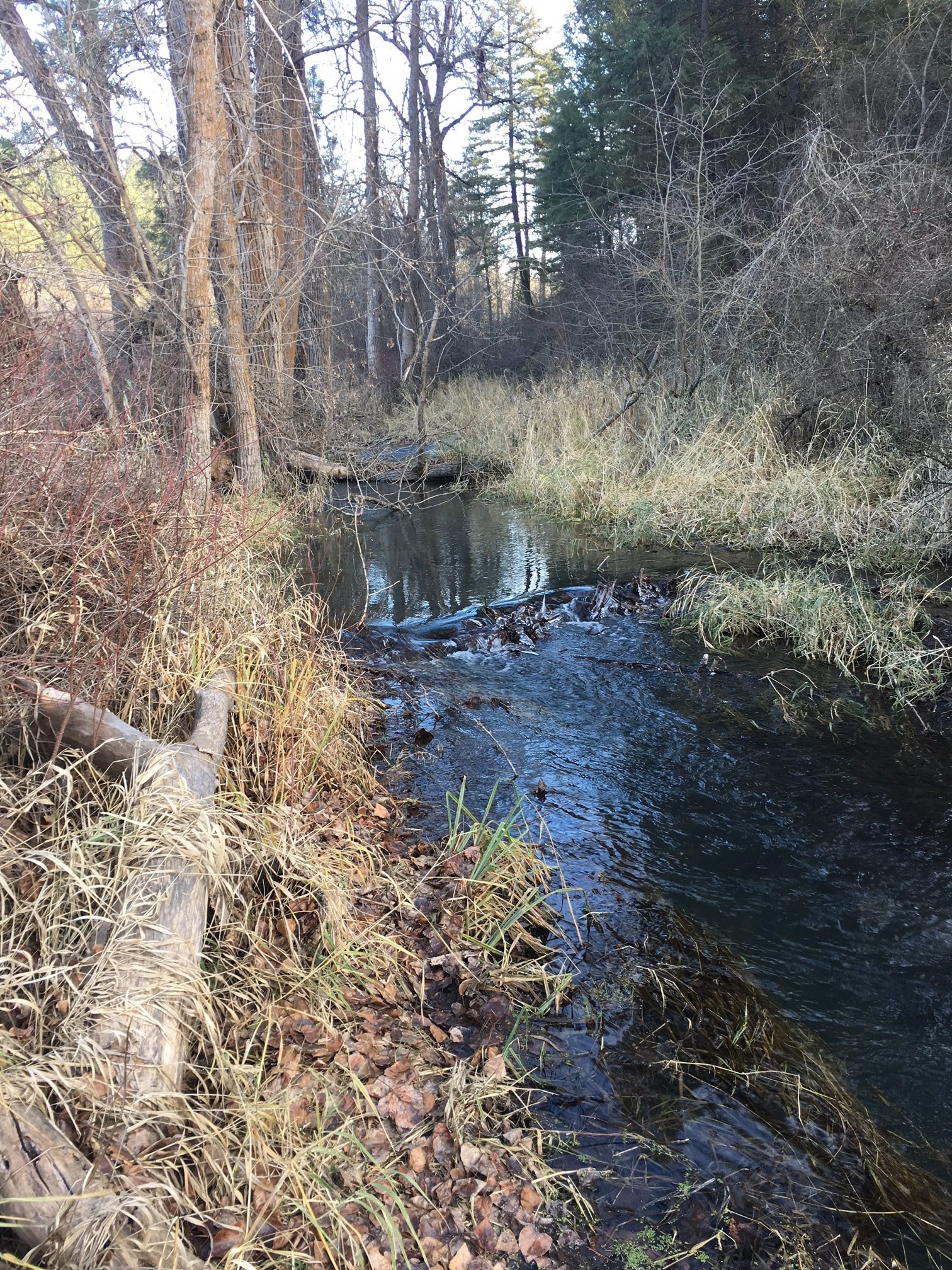Destructive practices take their toll on our waters
Lack of streamside vegetation, called riparian buffers, allow sediment, nutrients, high temperature and more to pollute our streams and rivers. Destroying riparian vegetation infringes upon the public’s right to clean water. Spokane River tributaries, in particular Hangman Creek and Deadman Creek, are suffering from poor land use practices. Fish, like our native redband trout, cannot live in these waters that they once thrived in. These creeks then pollute the Spokane River, degrading valuable habitat and recreational waters.
Land use that allows pollution and soil to run into the surrounding waters is one of the main issues in our watershed. This video discusses the “Why” of these issues.
Lack of riparian vegetation allows direct sunlight and pollutants to enter the North Fork of Spangle Creek.
Hangman Creek pollutes the Spokane River with sediment for much of the winter and spring.
Riparian vegetation protects our waters
A healthy stream has riparian zone of extending between 35 to 100 feet from the water consisting of trees and shrubs. Riparian vegetation filters pollutants and shades the creek, creating cold, clear water our native insects and fish need to survive. The vegetation provides habitat for insects, that can feed fish, and when it enters the water, provides habitat.
California Creek contains ample riparian vegetation.
Riparian buffers widths serve different functions in an ecosystem.
The Spokane Riverkeeper works to protect and restore riparian vegetation throughout the Spokane River watershed.
We advocate for clean water through advocating for riparian buffers on all streams. We use several tools to protect your River. We do this through litigation, advocacy, and science. If you see pollution entering our surface waters because of lack of riparian buffer, report it!








